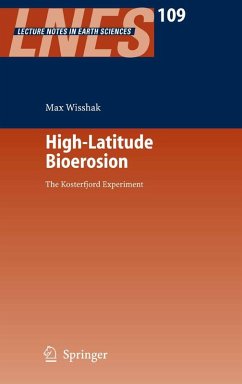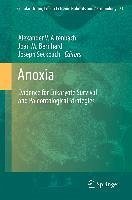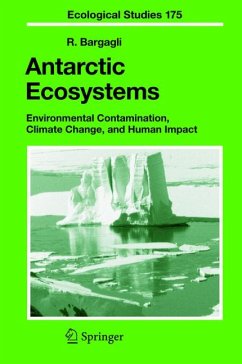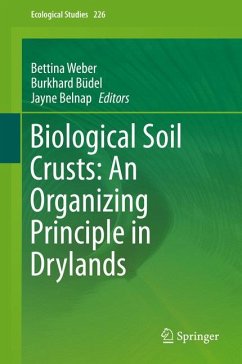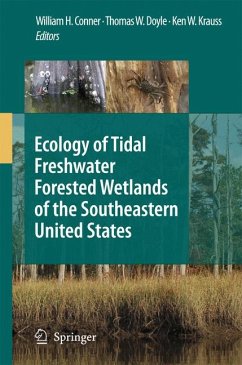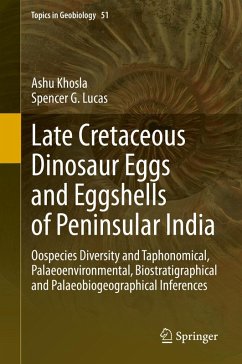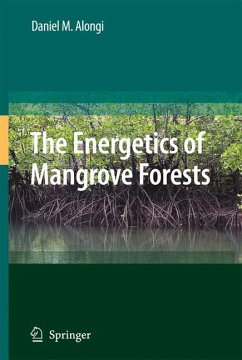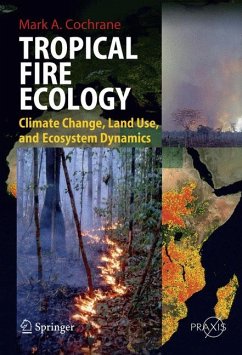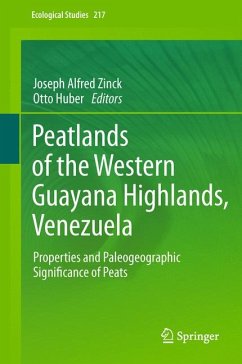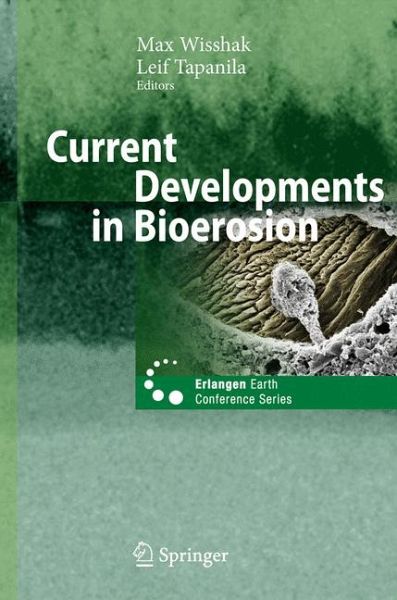
Current Developments in Bioerosion (eBook, PDF)
Versandkostenfrei!
Sofort per Download lieferbar
160,95 €
inkl. MwSt.
Weitere Ausgaben:

PAYBACK Punkte
80 °P sammeln!
A little more than forty years has past since the concept of bioerosion was formally recognised as the biological erosion of hard materials. In that time, it has become apparent from the literature that bioerosional processes affect a wide range of biological and geological systems that cross many disciplines among the sciences. This book is dedicated to crossing those traditional disciplinary boundaries to present a united and current perspective on the pattern and process of bioerosion.The book opens with papers on the evolutionary significance of bioerosion, and subsequently ventures out to...
A little more than forty years has past since the concept of bioerosion was formally recognised as the biological erosion of hard materials. In that time, it has become apparent from the literature that bioerosional processes affect a wide range of biological and geological systems that cross many disciplines among the sciences. This book is dedicated to crossing those traditional disciplinary boundaries to present a united and current perspective on the pattern and process of bioerosion.
The book opens with papers on the evolutionary significance of bioerosion, and subsequently ventures out to explore the remarkable diversity of bioerosive biota. From microboring bacteria to grazing echinoids, the studies use a variety of techniques ranging from field observations to sophisticated micro-computed tomography to investigate the ecological and environmental role of these organisms, including symbiotic interactions and alteration of non-carbonate substrates. The book concludes with a primer on the bioerosion bibliography website.
A diverse set of two dozen articles, including case studies and extensive reviews, highlight many aspects of the growing discipline of bioerosion research, from the early Palaeozoic to the present, from the Tropics to the Arctic, and from terrestrial environments to the deep-sea.
The book opens with papers on the evolutionary significance of bioerosion, and subsequently ventures out to explore the remarkable diversity of bioerosive biota. From microboring bacteria to grazing echinoids, the studies use a variety of techniques ranging from field observations to sophisticated micro-computed tomography to investigate the ecological and environmental role of these organisms, including symbiotic interactions and alteration of non-carbonate substrates. The book concludes with a primer on the bioerosion bibliography website.
A diverse set of two dozen articles, including case studies and extensive reviews, highlight many aspects of the growing discipline of bioerosion research, from the early Palaeozoic to the present, from the Tropics to the Arctic, and from terrestrial environments to the deep-sea.
Dieser Download kann aus rechtlichen Gründen nur mit Rechnungsadresse in A, B, BG, CY, CZ, D, DK, EW, E, FIN, F, GR, HR, H, IRL, I, LT, L, LR, M, NL, PL, P, R, S, SLO, SK ausgeliefert werden.




